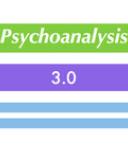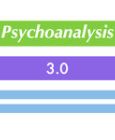
Psychoanalysis
Labor Day Exposes a Cruel Choice Facing Mothers of Premature Infants
Mothers of premature infants face cruel economic realities
Posted September 6, 2012
By Zina Steinberg, EdD
Labor Day 2012 has come and gone, underscoring just how much the day has lost its connection to workers' rights. While political stump speeches mouthed obligatory praise for workers, there was little serious reflection. As I return to my labor as a psychologist in a large urban neonatal intensive care unit (NICU), I confront the other labor—premature labor. And for the mothers on the NICU the work situation is often substantially worse than the rhetorical disappointments of a hollow holiday.
Many mothers of premature infants face a version of “Sophie’s Choice"; they must choose between their baby’s optimal psychological development or their family’s economic welfare. She may be the mother of one of the half million premature babies link or one of the 36,000 newborns needing immediate cardiac surgery born each year. She might be a friend, a family member, a neighbor, or just a fellow American. They are all us and workers who are mothers of premature infants are forced to confront a cruel choice.
Added to the tsunami of anxiety, guilt and fear these new parents feel is a devil’s choice when the family needs the mother’s income for economic survival—as many families now do. The mother has to choose between returning to work while her sick, tiny baby is hospitalized for weeks, or often months, or using up the rest of her Family Medical Leave, thereby having little or no time left of her leave when her baby is finally discharged to home. Plus many of these woman had been placed on medically advised bedrest in an effort to fend off labor as long as possible, giving better survival odds for the fetus, but again using up her leave time.
Research, supported by psychodynamic mother-infant interactional data tells us that hospitalized babies do better when mothers are active, daily participants in their baby’s care. In addition, those interactions help moms become better and more confident, competent parents, a confidence that matters as the baby grows.
We are failing these families. Consider, as an example, the NY City Council where legislators dither about getting a bill to the floor that mandates a paid sick leave, a benefit in at least 145 other countries. Here is what is at stake: if a business has more than 20 full time employees they would be entitled to up to nine paid sick days a year. If a company has between 5-10 employees, they only need to provide a maximum of five sick days. Less than five employees: zero. Currently more than 4 million Americans get no paid sick leave leaving them vulnerable to economic hardship and prone to higher rates of work place injuries. In fact, The Center for Disease Control found that when workers have sick leave, injuries decrease by 28 percent.
Compare this outrageous neglect of public welfare with a recent ruling by the Court of Justice of the European Union affecting 27 countries. It states that if a person gets sick before OR during a vacation, that person is entitled to reschedule the vacation. Paid sick leave and paid 4-6 weeks annual vacation leave are independent workers’ rights.
Hard to imagine a more different approach of making real our responsibilities to each other. Unpaid sick leave, harsh to all, is especially damning for women, often in the lowest paid jobs and triply burdened with the care of children, parents and themselves. When, because of our country’s labor policies, we ask parents of hospitalized newborns to make such a horrible choice we undermine the fragile connections between parent and premature and/or congenitally compromised infant. Our disrespectful policies likely add costs for longer intensive care stays, increased therapies post-discharge, and recurrent hospitalizations throughout childhood.
Our policies are both cruel and counter-productive. No family should be forced to choose between a child’s optimal psychological development or the family’s economic welfare.
---------
About the Author:
Zina Steinberg is an assistant professor of medical psychology in pediatrics and psychiatry, Columbia University College of Physicians and Surgeons where she serves as consultant to families and medical caregivers in the NICU. She is also on the faculties of the Parent-Infant Psychotherapy Training Program, Columbia University Center for Psychoanalytic Training and Research and the Stephen Mitchell Center for Relational Studies and is co-founder of www.bodycope.com. She has a private practice in New York City.
© 2012 Zina Steinberg, All Rights Reserved
http://www.psychologytoday.com/blog/psychoanalysis-30

